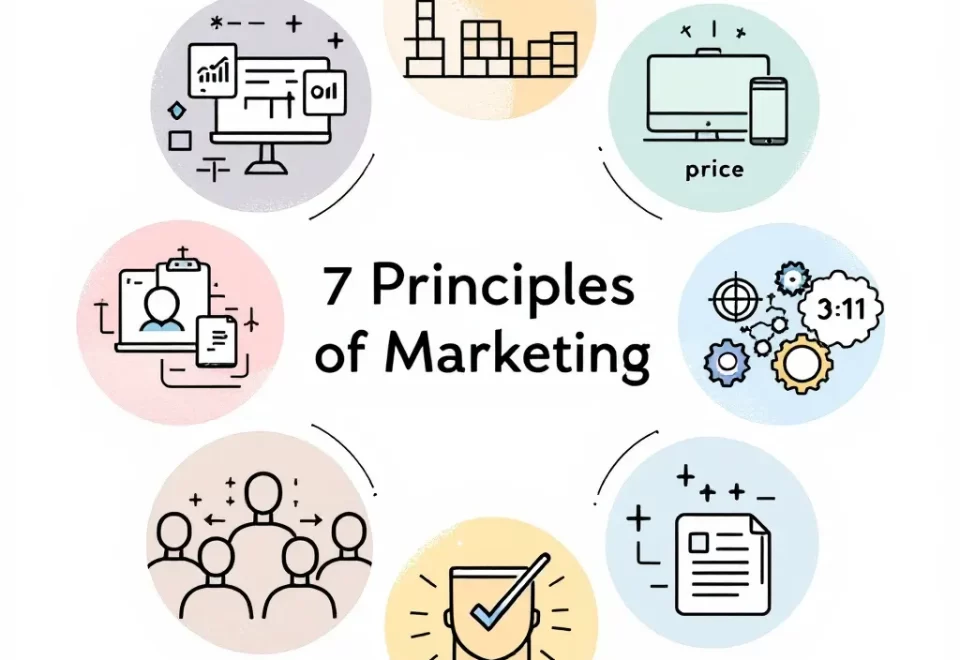No one knows what the future holds, especially when it comes to competition. In a world where technology can instantly take businesses globally, it’s hard to imagine how two companies in the same industry could coexist peacefully.
But surprisingly enough, this does happen more often than you might think. So, what’s the key to success for these neighboring businesses? How do they manage to avoid stepping on each other’s toes? Let’s look at some of the strategies used by nearby businesses with similar products and see if we can’t glean some insight into this perplexing phenomenon.
How Do Nearby Businesses With Similar Products Usually Compete?
There are different ways that companies in the same industry and proximity can compete. The key is to find a strategy that works for your company and allows you to maintain a healthy relationship with your competition. Here are some common ways businesses compete:
Price wars
This is probably the most common form of competition between businesses, especially when starting. If you’ve ever been to a store and seen two signs next to each other that say “Sale! 10% off!” then you’ve witnessed a price war in action.
Price wars can be effective in the short term, but they’re not always sustainable in the long run. This is because eventually, one company will have to lower their prices so much that they’re not making a profit or going out of business entirely.
Those companies making products unavailable to their competition can also come out on top, but this is a risky strategy that could backfire if the other business finds a way to get their hands on the product.
Product differentiation
This is when companies try to make their product unique so that customers will choose it over the competition. This could be done by changing the packaging, offering a new flavor or scent, or adding a special feature that the other products don’t have.
Product differentiation can be a great way to stand out from the crowd, but it’s important to make sure that your changes appeal to customers. Otherwise, you could waste time and money on a change that no one cares about.
If you think your product could benefit from some differentiation, talk to your customers and see what they would be interested in. Once you’ve made some changes, be sure to let your customers know about them so they can try out the new and improved product.
Niche marketing
Niche marketing is a strategy employed by businesses to target a specific group of consumers who are likely to have a need or desire for their products or services. This type of marketing allows businesses to focus their resources on a small but defined group of consumers rather than trying to reach a larger but less targeted audience.
Niche marketing can be an effective way for businesses to compete in a crowded marketplace. By targeting a specific group of consumers, businesses can stand out from their competitors and better meet the needs of their target market.
Advertising
Advertising is one of the most common ways that businesses with similar products compete against each other. They may run ads in the same newspapers or magazines, on radio or TV stations, or even on the same websites. The goal is to reach potential customers interested in what they have to offer.
The direct competitors may also try to lure customers away from each other with special deals or coupons. The market economy is quite effective in driving down prices and stimulating innovation.
Every sales promotion, every advertisement, and discount are all methods to compete. The key is to find what works for your company and allows you to maintain a healthy relationship with your competition.
Promotions
Promotions are another common way businesses with similar products compete against each other. They may offer discounts, coupons, or special deals to lure customers away from their competitors. Promotions can be a great way to attract new customers, but they should be used sparingly so as not to devalue your product or service.
When the market economy changed, businesses found that they had to change with it or be left behind. Whether your products have low prices or higher prices, you will need to find ways of promoting your product so that people are aware of it. The quality differences between products are not as easy to see, so promotions can be a great way to make your product stand out from the competition. All the promotional periods, ads, and special offers are all competition.
Social Media
Social media has become one of the most important tools for businesses to promote their products and services. It’s a great way to reach many people with your message quickly and easily. Businesses with similar products can use social media to share information about their product, offer discounts or coupons, or interact with potential customers.
Companies developing products that are unique or have a limited market can also use social media to reach their target consumers. By creating a profile on a social media site, businesses can connect with potential customers who may be interested in what they have to offer. The main business owner’s goal is to get their product in front of as many people as possible.
Are you ready to stand out from nearby businesses selling similar products?
What Are the Limitations of Locating Near Business Competitors?
Now that you know some of the ways businesses with similar products compete against each other, you may be wondering what the limitations are of locating near business competitors.
Canopy Crowding
When two businesses are near each other, they can often block their signage and marketing efforts with their physical structures. This is known as “canopy crowding” and can limit the visibility of both companies’ stores or buildings, making it harder for customers to find either business. If you are providing customers with a good or service, you want to make it as easy as possible for them to find you. Canopy crowding can make it more difficult for customers to locate your business, leading to lost sales. So, it’s important to consider the location of your competitors when choosing a site for your business. Even if you have the best product or service, your customers may not be able to find you if your competitor is located right next to you.
Brand Confusion
If two businesses are too close, customers may become confused about which company they are patronizing. This is especially true if the businesses have similar names or branding. This brand confusion can lead to lost customers and revenue for both companies. Even if the businesses are not direct competitors, customers may still become confused.
Businesses need to have a clear and distinct brand to avoid this issue. They should avoid using similar names or logos to other companies in the area. It is also important to have a well-defined target market. This will help customers understand what the company offers and who it is meant for.
Limited Customer Base
There may not be enough customers in the immediate area to support two businesses selling similar products in some cases. If this is the case, one or both businesses may need to consider relocating to a more populated area to find success. No matter how good a product or service is, a business cannot succeed if there are no customers to buy it. The positive effect of economies of scale set in. The two businesses may find it difficult to survive. The sales promotions and other marketing efforts of one company may negatively impact the other. When this happens, it can be difficult for either company to stay in business.
Increased Competition
Of course, the most obvious disadvantage of having a business close to another business with similar products increases competition. Businesses have to worry about attracting customers from other companies. Still, they also need to be aware of the possibility of the other company undercutting them on price or offering a superior product. This can make it difficult for either business to find success. As the minimum price in the market is set by the competitors, it may be difficult to charge more for a similar product. If one company offers a lower price, the other company may have to follow suit to stay competitive. This can lead to a race to the bottom, where both companies are struggling to survive.
Spying and Over-Sharing
When businesses are near each other, they may be tempted to spy on each other or share information that could give the other company an advantage. This can lead to distrust between the two companies and make it difficult to work together, even if they are not direct competitors.
To avoid this issue, it is important to be upfront about what information is off-limits to discuss. Suppose one company suspects that the other is spying or sharing information. It can create a hostile environment and make it difficult to trust the other company, even if they are not direct competitors.
Now is the time to stand out from nearby competitors!
Copycatting
In some cases, one business may attempt to copy the success of another nearby business by offering similar products or services. This can lead to a legal battle if the copying is done too closely, but even if it doesn’t, it can still confuse customers and make it difficult for either business to stand out from the competition.
While there are some disadvantages to having a business close to another business with similar products, there are also some advantages. For example, being near a competitor can help you better understand their marketing efforts and strategies. Additionally, being near a competitor can also help you attract customers who may have otherwise gone to the other business.
Ultimately, locating near a business competitor is advantageous or disadvantageous depending on the specific situation. Businesses should carefully consider all factors before deciding where to locate.
What Does Greater Competition Among Sellers Usually Lead To?
Greater competition among sellers usually leads to lower prices for consumers. This is because when more businesses are selling the same product, they have to work harder to attract customers and convince them to buy from them instead of from a competitor. To do this, businesses typically lower their prices.
Of course, there are other ways that businesses can compete besides just on price. They can also compete on quality, customer service, selection, or other factors. But in general, when there is more competition among sellers, businesses will tend to compete more on price.
Even if businesses don’t lower their prices, competition can still lead to lower prices for consumers. When there is more competition, businesses have to work harder to make a profit. They may be less likely to engage in activities that increase their costs, such as advertising, or be more efficient in their operations. This efficiency can lead to lower prices for consumers, even if businesses don’t lower their prices directly.
How Does Competition Affect Product Quality?
When businesses compete for customers, they generally try to offer the best possible product at a competitive price. This often leads to businesses improving their products and services to differentiate themselves from their competitors.
As a result, competition usually results in higher quality products and services for consumers. Even if a business has a monopoly on a particular product or service, competition from other businesses can still force that business to improve the quality of its offerings. However, producers’ rights, intellectual property, and other legal protections can limit competition and lead to higher prices and lower quality products for consumers.
Final Words on How Do Nearby Businesses With Similar Products Usually Compete
There are various ways that businesses with similar products can compete against one another. The most common method is to offer a lower price, but businesses can also compete by offering more convenient locations, better customer service, or a unique product.
Ultimately, the best way for businesses to compete is to determine what their customers want and then offer a superior product or service.
At last, every business wants to have a monopoly on their products or services but it is not possible in the real world. There has to be some sort of competition, which can either be good or bad for the business. If the competition is healthy, then it will bring out the best in each business and lead to innovation and better-quality products for consumers. However, if the competition is unhealthy, it can lead to businesses cutting corners and lowering their quality standards in order to survive.
Growth Hackers is one of the finest growth hacking agencies helping businesses from all over the world grow. There is no fluff with Growth Hackers. We help entrepreneurs and business owners gain a competitive edge over nearby businesses with similar products, generate qualified leads, optimize their conversion rate, gather and analyze data analytics, acquire and retain users and increase sales. We go further than brand awareness and exposure. We make sure that the strategies we implement move the needle so your business grow, strive and succeed. If you too want your business to reach new heights, contact Growth Hackers today so we can discuss about your brand and create a custom growth plan for you. You’re just one click away to skyrocket your business.







